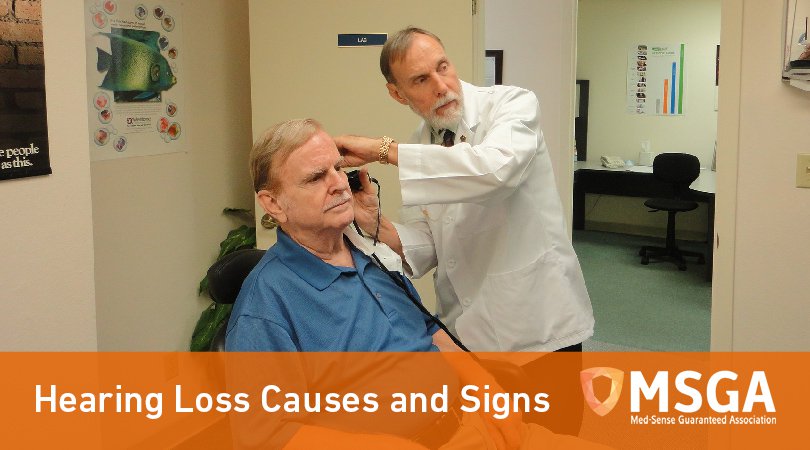Each day, hundreds of patients from around the world experience pain or frustration due to undiagnosed hearing loss concerns. The personal nature of the factors that lead to impaired hearing may keep those afflicted from seeking medical attention at a licensed hearing center, reducing their quality of life dramatically. It’s important to be aware of factors that would cause ear-related issues, and crucial signs that you may be experiencing hearing loss.
Signs of Hearing Loss
Those who are hard of hearing may not realize they need help until their situation has become severe. It’s a good idea to talk with a medical professional if you start to experience:
- Difficulty focusing, listening, or distinguishing voices over the phone.
- Futility in following conversations involving two or more voices.
- Requiring people to repeat what they are saying multiple times.
- Turning up the volume meters loud enough to make other members of the household complain.
- Issues discerning voices or tracking conversations due to interfering background noise.
- Believing that others are mumbling or not enunciating enough when they are speaking loudly.
- Difficulty hearing, understanding, or discerning higher pitched voices, such as those of women and children.
Types of Hearing Loss
Not all forms of hearing loss are permanent. Depending on both external and internal factors, symptoms may lead to one of the following diagnoses:
- Sensorineural hearing is permanent damage accrued from damages to the delicate structures inside the ear or the auditory nerve. This diagnosis will often come after external trauma or situations involving physical damage.
- Conductive hearing is a temporary loss that occurs when earwax, fluids, or infections obscure the path of sound-waves to the ear. A simple treatment or surgery is generally all that’s necessary to restore normal auditory function.
Causes for Hearing Loss
The causes behind this take many different forms. Some factors are preventable if caught in the early stages of development.
- Loud sounds from lawn mowers, snow blowers, music, and fireworks cause damage to the structures of the inner ear. High decibel noises are the most common cause for permanent hearing loss.
- Injured eardrums erode the quality of audio your brain can process. These injuries come from infections, pressure, and punctures from Q-Tips or other objects.
- Health conditions such as high blood pressure or viral illnesses may result in permanent hearing loss.
- Ototoxic medicines are used to treat dangerous sicknesses such as cancers and heart disease. While not always adverse to your hearing, some people may begin to develop sensitivities that effect the inner ear.
- Hereditary considerations can cause both temporary and permanent auditory loss. Diseases like otosclerosis may not become evident until later in life, while other factors are present at birth.
Coping & Professional Help
The inability to hear well can quickly create feelings of hopelessness and frustration. While not all circumstances can be prevented, certain treatments and technologies can aid hard of hearing patients on their quest to healing. It’s important to speak with your personal healthcare provider about your options if an official diagnosis has been made.
For more information about possible loss in hearing and receiving a professional consultation, check out the amazing benefits of American Hearing Benefits.

